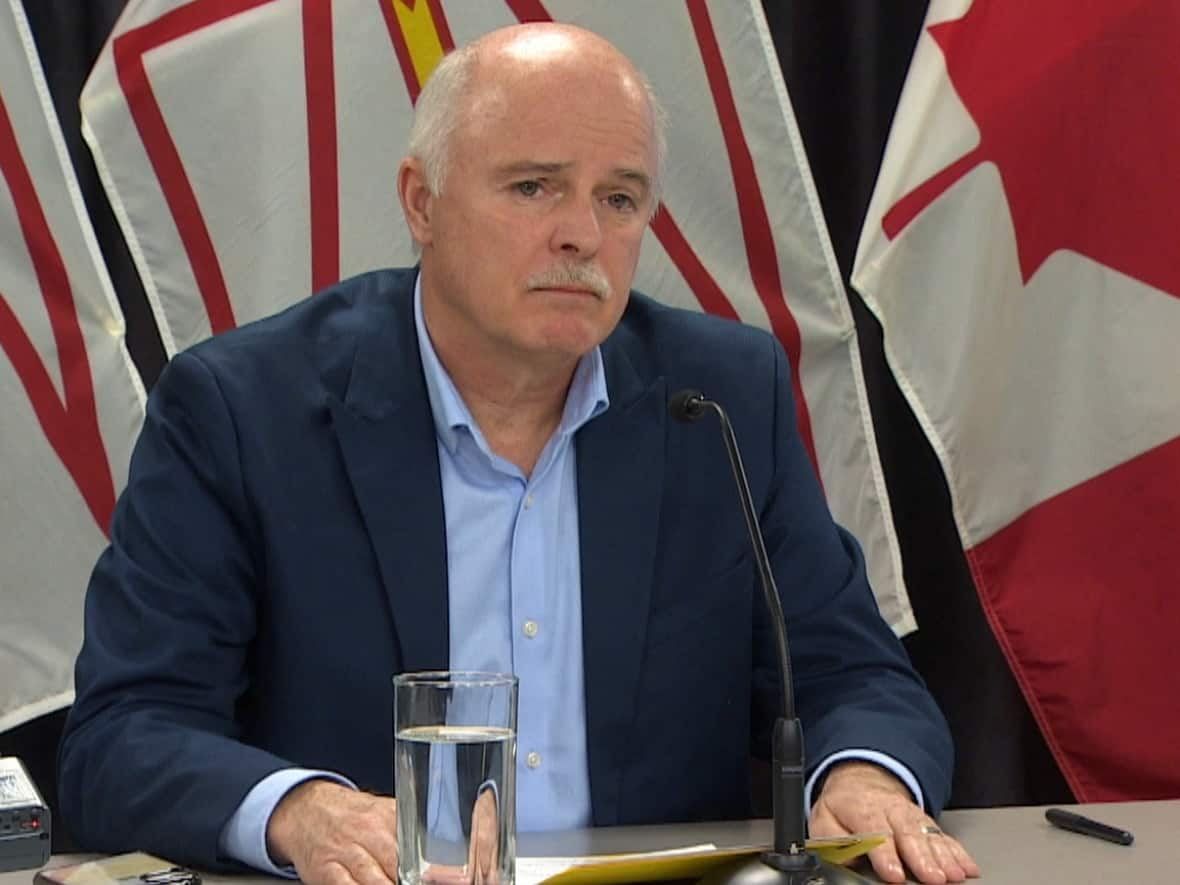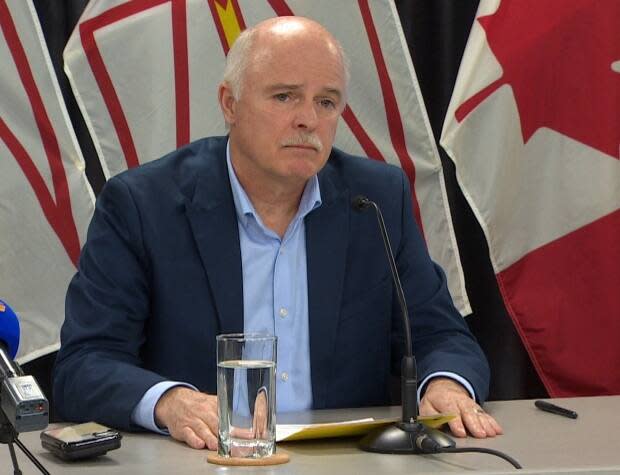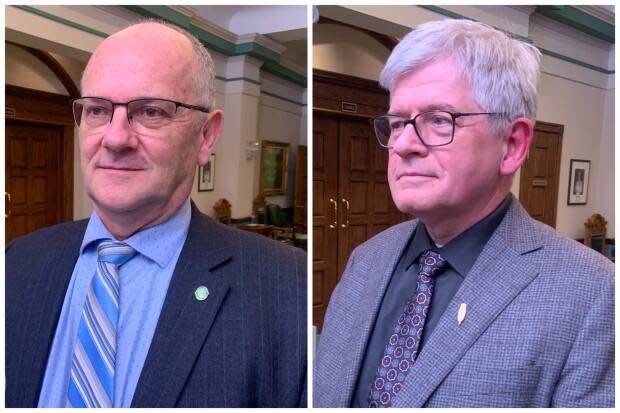The N.L. government is opening another urgent-care clinic — with staff TBD


The provincial government plans to create an urgent-care clinic in the St. John's region — though it isn't certain where staff will come from.
Health Minister Tom Osborne made the pre-budget announcement on Tuesday, saying the urgent care clinic, which provides care for "unexpected, non-life threatening concerns" will help relieve pressure on emergency rooms.
"Our emergency departments have been overburdened, and many of the cases presenting to our emergency departments are lower-level acuity — they can easily be dealt with with an urgent-care centre," he said while speaking with reporters.
Osborne said the urgent-care clinic in St. John's, which he said will open by the end of April 2024, will operate 12 hours a day, seven days a week. Phone, online and walk-in appointments will be available, he said.
He expected the clinic to serve approximately 100 people a day, and 36,500 people per year.
Osborne said the provincial government is looking to rent an existing building for the 20,000 square foot facility, which will include 20 exam rooms, diagnostic imaging and laboratory services.
During a technical briefing, officials said the facility will cost $900,000 to open, with an annual operating cost of $4 million.
On Tuesday, the provincial government issued a request for proposals for the building. The RFP process will last until April 27.
The human resources piece
Osborne said the clinic staff will have about 15 full time-equivalent positions including doctors, registered nurses, licensed practical nurses, nurse practitioners, x-ray and laboratory technicians and administration.
He said Eastern Health is working on recruiting for those positions.
"We are hopeful that we've seen the worst of our health-care shortage challenges and we're going to start being able to staff up with the recruitment efforts we've seen," he said.
But Paul Dinn, Progressive Conservative health critic, questioned if the provincial government will be able to find the staff.
"Where are they getting the people?" he asked.
"This all comes down to missing the boat on what the real issue is here, and that's having sufficient…health care workers to do the job."

NDP interim leader Jim Dinn had the same concern — and pointed to similar problems in long-term care and correctional facilities in Newfoundland and Labrador.
"It comes down to a human resources piece," he said.
"There seems to be a common denominator as to the lack of staff, and I would say decades, successive administrations of failing to address it."
More urgent-care clinics could come
Dr. Rebecca Rudofsky, Eastern Health clinical chief of primary care, said the health authority will provide more details on how patients should choose whether to go to a walk-in clinic, urgent-care centre or emergency room.
"If they're not in the appropriate place they'll be redirected to where's appropriate," she said.
Last week, Osborne announced the province's first urgent-care clinic would replace the emergency room in Whitbourne, which has been closed since June. That clinic, which opened Monday, is currently operating three days a week, though Osborne said the health department plans to expand the hours.
Dozens protested on the steps of the Confederation Building on Tuesday, demanding the reinstatement of the 24/7 emergency department.
Watch: Urgent-care clinic no substitute for full-time ER, say Whitbourne protesters
Osborne said the provincial health authority could set up urgent-care clinics in other areas too, but didn't specify where.
4 health authorities merging April 1
Osborne also offered some more details about what to expect when the four regional health authorities merge under a single provincial health authority on April 1.
He said the new provincial health authority will have five distinct zones: Eastern – Urban, Eastern – Rural, Central, Western and Labrador-Grenfell. Each zone will have its own volunteer health council, which will have representation on the provincial health authority board.
He said council membership hasn't been determined, but they'll have a "wide array" of expertise.

